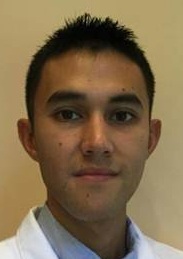ENGL 1701-006: Creative Writing I
Instructor: Vanessa Pelizzon
This introduction to writing poetry and creative nonfiction combines readings in the work of master poets and essayists with weekly writing projects and regular feedback to give you a firm grounding in the basic craft of both genres. Over the semester, you’ll write and revise three to five poems and three nonfiction pieces. You’ll also complete weekly exercises–including iambic pentameter projects and an observation log–to hone your skills. You’ll receive regular feedback on your writing from the class as a whole, from smaller workshop groups, and from individual tutorials with the professor. You’ll also attend readings by several well-known authors working in these genres when they visit campus. Graded requirements for the class include weekly readings and writings, written feedback for your peers, reviews of author events, and a substantially-revised final portfolio of your work.
ENGL 2011: Literary Study Through Reading and Research
The five sections of ENGL 2011 are described separately.
ENGL 2401-002: Poetry
Instructor: Jonathan Hufstader
How to read, hear, see, understand, enjoy, interpret, think about, talk about, and write about poems. Come prepared to do all these things actively in class. Two papers, midterm, final.
ENGL 3113W-001: Renaissance English Literature
Instructor: Clare Costley King’oo
Prerequisite: English 1010 or 1011 or 2011 or 3800
This course, designed with Honors students in mind, delves into the major writers and literary traditions of England from the beginning of the sixteenth century to the middle of the seventeenth century (or, roughly, from Sir Thomas More and Sir Thomas Wyatt to John Donne and John Milton). Our principal aim will be to familiarize ourselves with the most popular genres of the time, including autobiography, martyrology, lyric verse, epic poetry, prose fiction, and drama. We will also investigate how the literature of the period interacted with contemporary social, cultural, and economic upheavals—such as the arrival of the printing press, the development of Humanist thought, the growth of capitalist enterprise, the exploration and conquest of the new world, the expansion of the enclosure movement, and the often-violent religious conflicts of the Reformation. Our discoveries will be the focus of our own rigorous writing practices, as we work on improving our argumentative and stylistic skills through a series of essays (with revisions). We will learn to respond in writing not just to our primary literary texts, but also to recent secondary criticism—thus taking important steps toward becoming a competent scholar in the field. Lively participation in class discussions will be expected and warmly encouraged.
